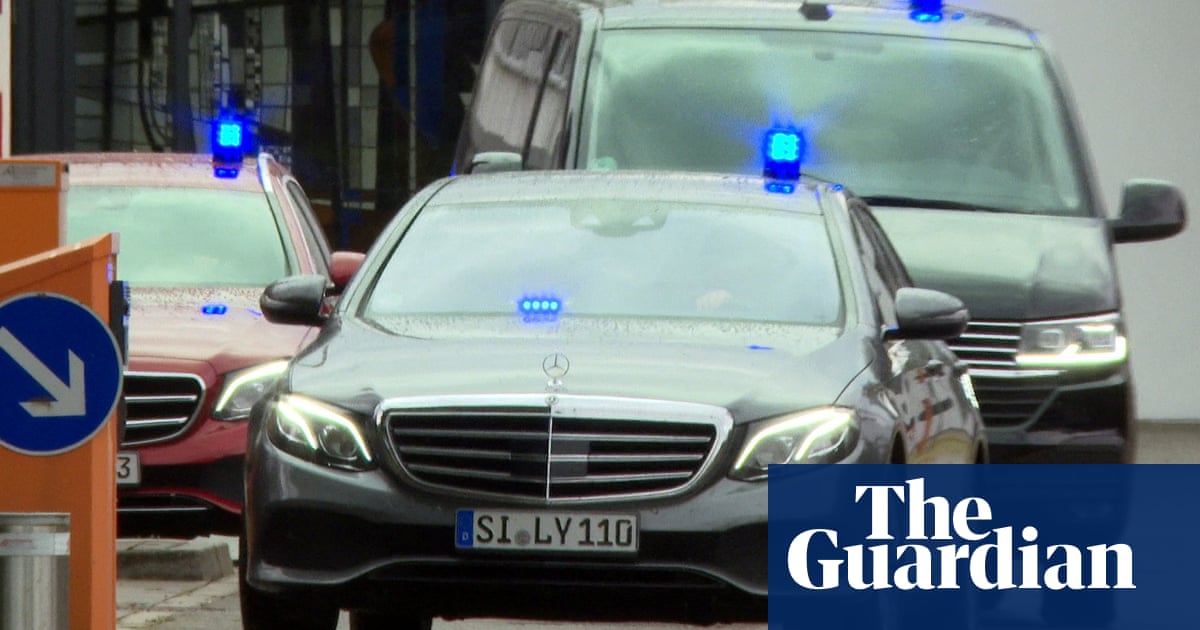German police have staged early morning raids against an alleged far-right “terrorist” cell on suspicion of attacks against asylum seekers and political enemies, arresting five teenage suspects, federal prosecutors have said.
The operation on Wednesday targeting a neo-Nazi group calling itself “Last Defence Wave” marked the latest high-profile action against groupsGermanysays are working to destabilise its democratic order.
Four of those arrested – named only as Benjamin H, Ben-Maxim H, Lenny M and Jason R, in line with German privacy rules – are suspected of membership of a “domestic terror organisation”. The fifth, Jerome M, is accused of supporting the group.
Two of the suspects are accused of attempted murder and aggravated arson. All five are German citizens between the ages of 14 and 18.
Prosecutors said in a statement they were also investigating three other people, aged 18 to 21, who are already in custody in connection with the case. The arrests took place in three states and were accompanied by searches at 13 properties in five regions.
Authorities believe the Last Defence Wave group began in April 2024 at the latest. The justice minister, Stefanie Hubig, said what was “particularly shocking is that all those arrested today are said to have been minors when the terrorist group was founded”.
“This is an alarm signal and it shows that rightwing extremist terrorism knows no age,” she said in a statement.
Prosecutors said the group’s members “see themselves as the last line of defence of the ‘German nation’”. Their intent is “to bring about the collapse of the democratic system in the Federal Republic of Germany through acts of violence, primarily against migrants and political opponents”.
Two of the suspects allegedly set fire to a cultural centre in the eastern town Altdöbern in October, prosecutors said, adding that several people living at the property at the time were lucky to escape.
Ben-Maxim H is believed to have written a speech delivered in a video by Lenny M before the arson attack, encouraging other group members to commit similar acts. The public broadcaster ARD said online chats linked to the group and including about 200 people glorified the Nazi regime and propagated large scale, politically motivated attacks.
In January, another two suspects allegedly smashed a window at a home for asylum-seekers in Schmölln, eastern Germany and tried unsuccessfully to start a blaze by setting off fireworks inside, prosecutors said.
They are believed to have sprayed the group’s initials on a wall, swastikas and slogans such as “foreigners out”, “Germany for the Germans” and “Nazi territory” while flashing the straight-armed Hitler salute.
The same month, three suspects allegedly planned an arson attack on a shelter for asylum-seekers in the eastern town of Senftenberg and acquired explosive material from the Czech Republic. But the alleged plot was foiled because of the earlier arrests of two members, reportedly using the findings of an undercover television reporter.
News magazine Der Spiegel said Last Defence Wave activelyrecruited new members using Instagram, TikTok, Telegram and WhatsApp, setting a minimum age of 15. Investigators found more than 70 chat groups across the country with what they say are links to the group.
Der Spiegel quoted experts as saying the surge in youth interest in violent neo-Nazi groups recalled thenotorious “baseball-bat years”after national reunification in 1990 when a wave of racist, homophobic and anti-leftist attacks rocked Germany.In a separate case last week, authorities outlaweda cult-like far-right group called “Kingdom of Germany”as a threat to the country’s democratic order and arrested four of its alleged organisers including the ringleader Peter Fitzek, the self-proclaimed Peter I.The Federal Criminal Police Office said in an annual report released on Tuesday that the number of violent crimeswith a rightwing motive in Germany was up more than 17% last yearto 1,488. That was part of an overall 15% increase in violent politically motivated offences to 4,107.
